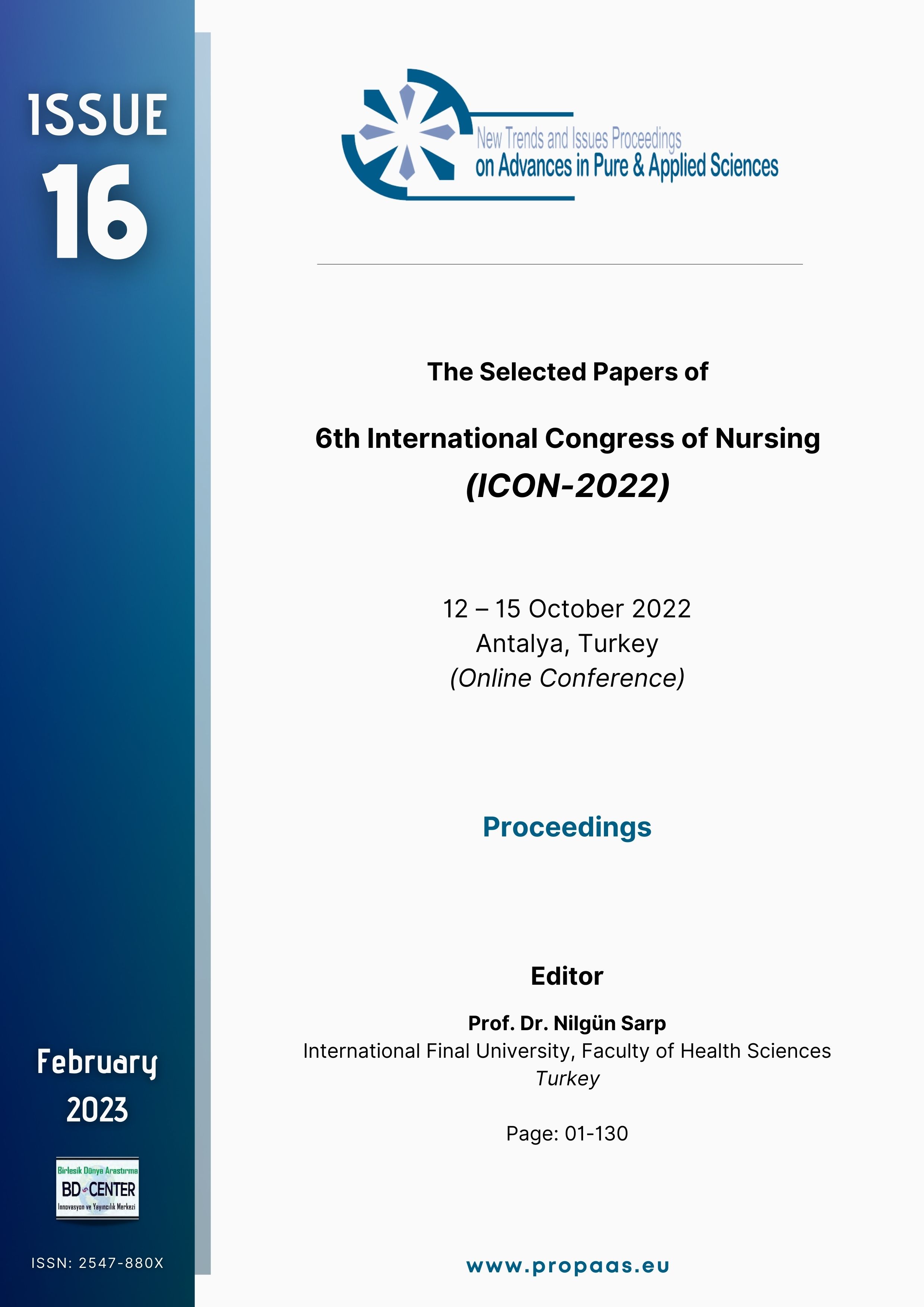The effect of care-related attitudes of palliative patients' relatives on stress levels
Main Article Content
Abstract
This study was conducted as a descriptive and relationship-seeking study to determine the effects of care-related attitudes of inpatients' relatives in the palliative care unit on stress levels. The study was carried out with the participation of 160 relatives of patients who were under care and treatment in the palliative care unit and internal and surgical clinics of a training and research hospital. The study group of the study consisted of 80 relatives of patients who were cared for and treated in the palliative care unit; The control group consisted of 80 relatives of patients who continued their care and treatment in internal and surgical clinics. In the study, data were collected using a descriptive information form for the patient and their relatives, the Frommelt Attitude Toward Care of the Dying Scale (FATCOD), and the Caregiver Strain İndex (CSI). It was determined that the attitudes and stress levels of the relatives of the patients towards caring for the dying individual were moderate. It was determined that, as the attitudes of the relatives of the patients towards giving care to the person approaching death increased, the scores of the caregivers in the strain index decreased.
Keywords:Care; palliative care; patient; relatives; stress
Downloads
Article Details
- Authors retain copyright and grant the journal right of first publication with the work simultaneously licensed under a Creative Commons Attribution License that allows others to share the work with an acknowledgement of the work's authorship and initial publication in this journal.
- Authors are able to enter into separate, additional contractual arrangements for the non-exclusive distribution of the journal's published version of the work (e.g., post it to an institutional repository or publish it in a book), with an acknowledgement of its initial publication in this journal.
- Authors are permitted and encouraged to post their work online (e.g., in institutional repositories or on their website) prior to and during the submission process, as it can lead to productive exchanges, as well as earlier and greater citation of published work (See The Effect of Open Access).
